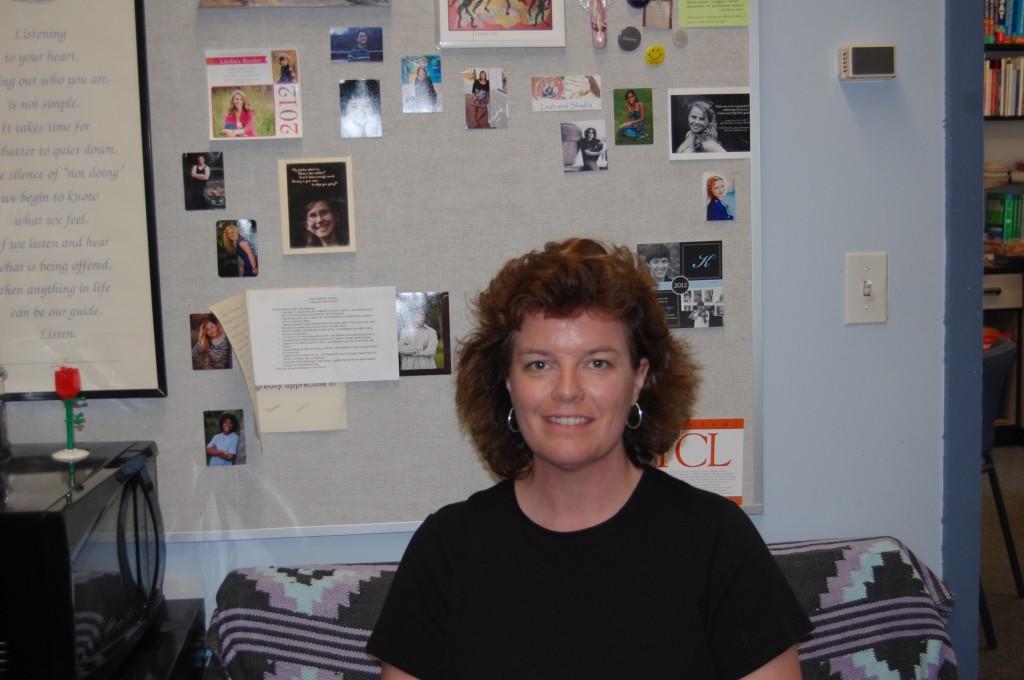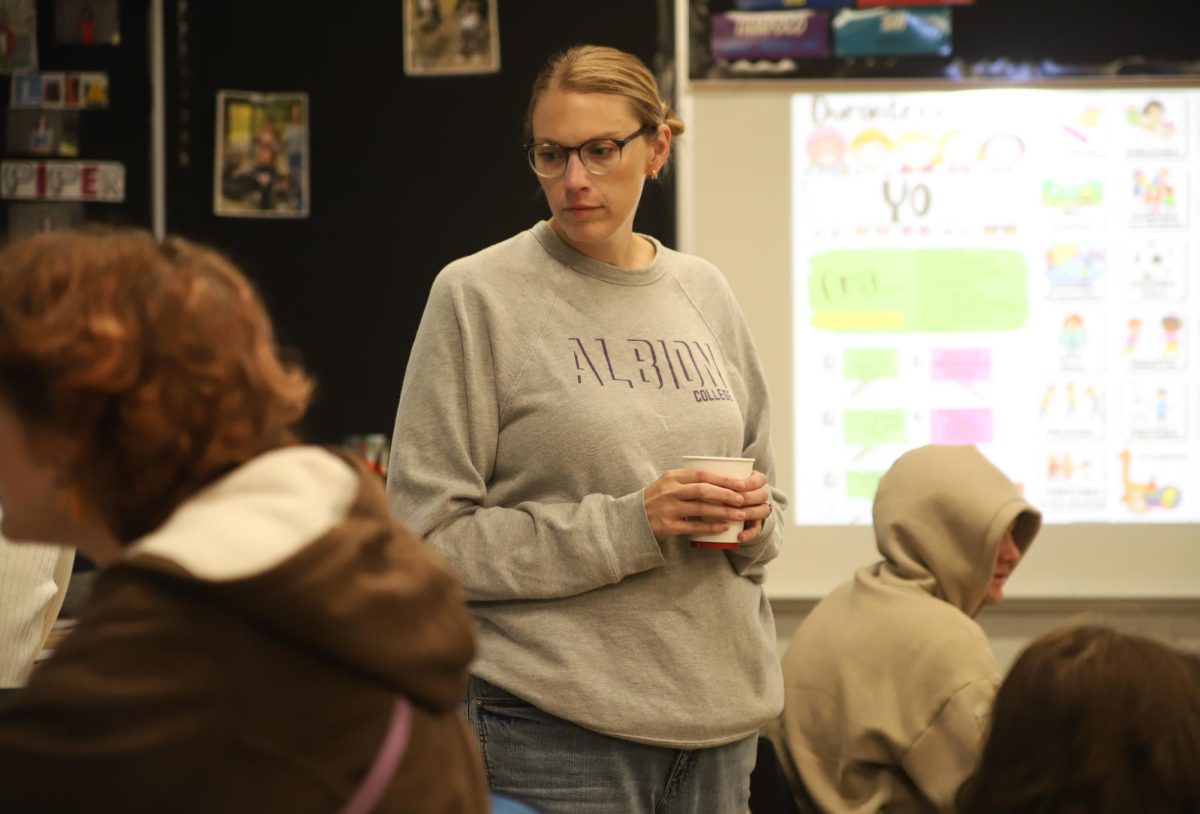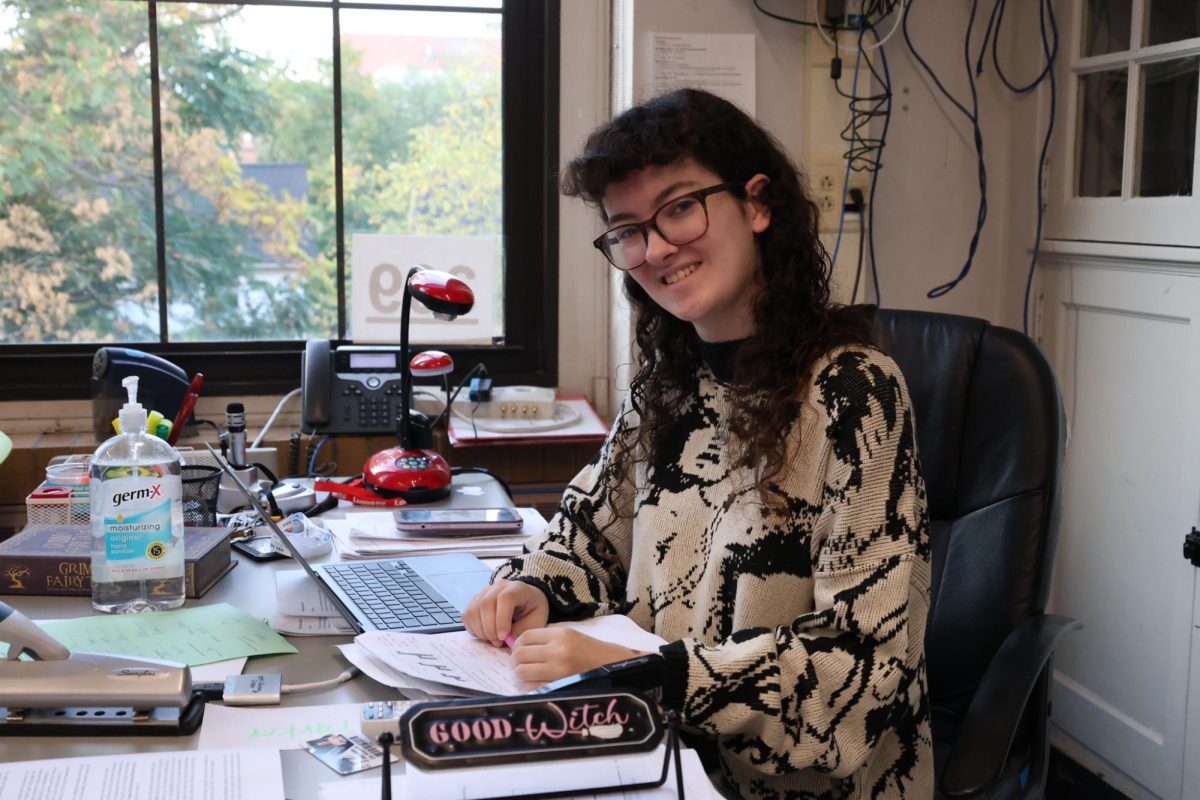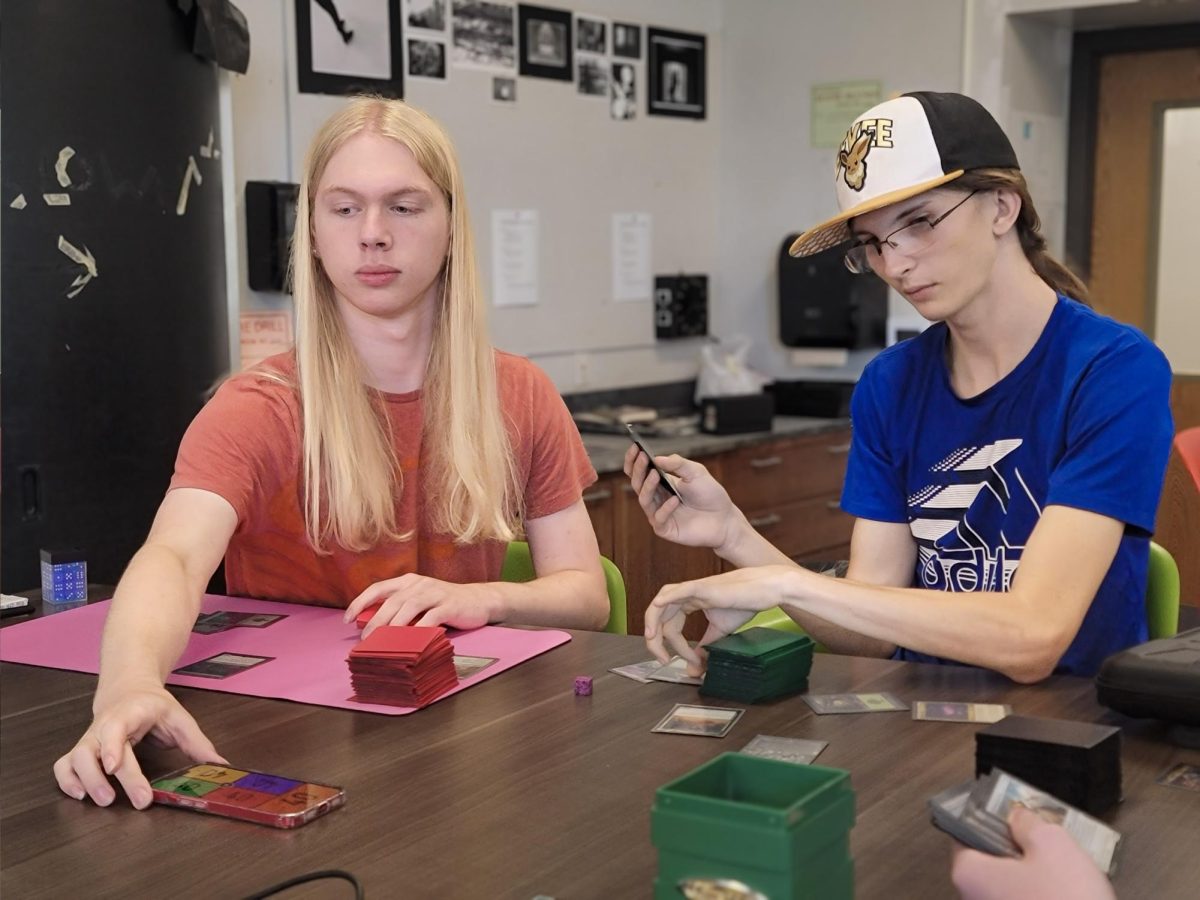When he was a senior in high school, University of Michigan student Chris Reynolds’ friends spent Saturdays playing basketball or going out at night. Often, Reynolds couldn’t join them. He was inside, in his room, struggling with his financial aid applications for college.
“I was pounding my head against the wall because I couldn’t figure these things out,” said Reynolds, who just finished his freshman year. Reynolds is a first-generation college student; neither of his parents attended college. His mother, a housekeeper, and father, a delivery truck driver, always supported his ambition to become an aerospace engineer and attend college, but couldn’t lend their experience to help him through the application process.
“A lot of my friends didn’t care about financial aid, their parents were going to pay for every penny,” said Reynolds, who grew up near Philadelphia. “I had to do it. My parents couldn’t help me out with it because they never did it.”
Like Reynolds, many first-generation college students, or “first-gens,” face hurdles unknown to peers, also known as “continuing gens,” whose parents have attended college. First-gens may have to navigate the admissions process on their own, and enter the world of college without knowing much of what to expect. And, especially at a school like Michigan, where first-gens make up just about 13 percent of students, first-gens face the challenge of relating to peers with backgrounds very unlike their own.
GETTING THERE
CHS counselor Diane Grant graduated from the University of Rochester in 1990 as a first-generation college student. Her father owned a successful manufacturing business but never attended college. Her mother dropped out of Niagara University after a semester. Both always made it clear that the kids in the family would go to college. Grant’s mother ensured that there was no slacking off on schoolwork.
“You did it right or not at all, and you really didn’t have the option to not do it at all, so you just did it,” said Grant.
Though Grant knew she was expected to go to college, she didn’t know exactly how to get there. In her small town about an hour from Rochester, New York, only about 20 percent of the graduating class went on to college. She used her brother’s friends, whose colleges included Michigan and Duke, and other people she knew, as role models.
When three people in her older sister’s class got Reserve Officers’ Training Corps (ROTC) scholarships to college, Grant thought, “I could totally do that. I don’t even know what the military’s about, but I could do that.” After applying for and receiving ROTC scholarships from the Army, Marines, and Air Force, Grant chose to attend college on a full ROTC Air Force scholarship.
Though the scholarship—which Grant later had converted into a loan after graduation when the military was making cutback—took care of paying for college, Grant still had to figure out where to apply.
“So guess where I applied…Michigan, Duke and the University of Rochester,” she said. “Because those were the only ones I knew. I had no idea how to look.” After being waitlisted at Duke and accepted to the others, Grant chose University of Rochester because of its location, and because it impressed her on a visit. When she reached college, she realized how different her application process had been from that of other students.
“People were talking about colleges that I know now, but I had no clue existed,” she said. “People were like ‘Oh yeah, I tried to get into Tufts, this was my third choice.’ They were all talking about University of Rochester as a consolation prize. And I was thinking, ‘This is a really good university, what are you talking about?’”
CHS sophomore Daniel Smith’s father is a cook who did not attend college, and his mother is a phlebotomist who is just attending college now. Smith wants to go on to study botany in college, but realizes that he might not get as much help from parents as some of his peers.
“[My parents] don’t know much about it,” he said. “I want to get into a good college, and it’s hard to have someone help you when they’re not so used to that process.”
Smith uses Internet resources to look for colleges, and also comes into the CHS counseling office to get help.
First-gens are often capable of being self-reliant, according to Dwight Lang, a professor of sociology at U of M, adviser to the First-Generation College Students @ Michigan student group, and a first generation college student himself. They are high achievers and tend to have equal or higher high school GPAs as continuing-gen students.
However, though Grant and Reynolds both grew up expecting to go to college, this is not the case for all first-gens.
“The first time a first-gen student might hear about college might be in middle school, when their teachers tell them, ‘You know, you’re really good at natural science, you know you write well, you scored really high here on this standardized test. Have you thought about going to college?’” said Lang.
CHALLENGES ON CAMPUS
Recent University of Michigan graduate Bri’An Davis didn’t think being a first-generation student was a big deal until she reached college. In high school, it hadn’t mattered much, but at U of M, it did.
“High school was a lot about just getting good grades and getting test scores,” said Davis, who grew up in Battle Creek, Michigan. “But once I got into college I feel like it was completely different…I didn’t know a lot of things that all these kids knew, like getting internships and networking. I didn’t have my parents to help me get connections to different opportunities like that…You have to navigate it for yourself.”
Davis was raised by a single mother, a post office worker, who encouraged her to do well academically and go on to college. But once Davis moved on to the University of Michigan her mother couldn’t be as helpful, because she hadn’t experienced college.
“That can be a challenge when parents have not attended college and they generally support what [the kids] are doing but there’s not that immediate identification with going to college like [continuing-gen] parents,” said Lang.
When Davis entered college, one thing she didn’t realize was that she should be reaching out to faculty members for help. Luckily, she did figure out that she would need the help of faculty for recommendation letters and other resources, but not until about junior year.
“I always felt really intimidated by the faculty,” said Davis. “[I thought] ‘I’m just little old me, they don’t want to help me, I’ll be fine as long as I’m getting good grades because that got me by in high school.”
Many first-generation students come from working-class backgrounds, but, according to Lang, faculty sometimes teach on the assumption that all students are middle-class.
“They’ll use examples in the classroom that subtly validate the middle class experience but exclude students who haven’t traveled to Europe four times before they started college,” said Lang. “Maybe sometimes a faculty member might make a statement that’s derogatory towards blue collar workers and then what does a student do and how do they feel about that?”
Though they tend to be more intimidated by faculty than continuing-gen students, first-gen students generally do well academically in college, according to Lang. At Michigan, they tend to be serious students, because they are taking a risk in coming to college, and want to be successful. However, even when academics aren’t a problem, navigating the social life can be difficult for first-gens.
“It was tough to make friends because the first thing you ask when you go to college is, ‘Where are you from? What’s your story? Where do you come from? What do your parents do?’ And all these kinds of weird questions. They’d say, ‘My dad is a doctor, my mom’s a doctor, too,’” said Reynolds. “When you meet a friend, you usually try to find similarities, that’s how you find friends. It was hard for me to find similarities with some of these people.”
According to Lang, students from working-class backgrounds must adjust their behavior to fit with the middle-class norm at Michigan.
“You need to learn a new script, a new role, a new way to use language, a new way to present yourself,” he said. “Language and demeanor and tone, you just kind of pick it up. Like osmosis, you absorb it.”
Both Reynolds and Davis noticed that they differed from peers in dealing with money. Davis remembers talking to a student who wanted to begin working out more. The student said she planned to call her dad and ask him to pay for her to take an exercise class.
“If I wanted to do little miscellaneous things like that, I would have to do that with my own money,” Davis said.
Reynolds remembers a Saturday when all his friends were going to off to eat and hang out outside. Reynolds couldn’t go.
“I told them I had to pay my bills, and these were obviously not first-generation college students, they didn’t understand,” he said. “It’s tough because I have a lot of things that I have to deal with that most people don’t have to deal with, such as working a lot more.” Reynolds works to support himself, but he also sends money home to his family, which had to file for bankruptcy recently.
First-Generation College Students @ Michigan, the group that Lang advises, can help students like Davis and Reynolds find others with similar backgrounds. The group meets every other week, and though 70 students are connected to the group, about 15 come to meetings regularly. The students plan activities on campus and also volunteer off-campus. Some part of the meeting is always devoted to discussion so that students can talk about the challenges and rewards of being first-gens.
Reynolds has found friends outside the first-generation group, but, throughout his freshman year, he found it really helpful to have friends within the group who were having similar experiences.
“I was struggling to figure out what college was, what it meant to be a college student,” he said. “They were doing the same thing.”
FAR FROM FAMILY
“First gen families are known to be very, very close, and my family is the epitome of being close,” said Reynolds. Reynolds picked U of M for its top-ranked aerospace engineering program, but it’s not always easy being away from his family in Pennsylvania, including his 15-year-old brother, whom he wishes he could be there for.
“It’s really hard, knowing that they’re back home struggling, and trying to deal with bankruptcy issues,” he said. “Just to be away from my family, to see all the things happen from 600 miles away, that was also tough.”
Though not all first-gens go to college as far from home as Reynolds, many feel a disconnect from their families in other ways. When Davis goes home, she notices a contrast between her life at U of M and where she grew up.
“I grew up in a small house, I had a happy childhood, I didn’t want for anything, but coming to Michigan and going to all these different fancy events that are catered, I’d never been to events like that in my life,” she said. “Meeting all these renowned people, and then going back home and home is the same, you change but your home doesn’t change. Sometimes, I find myself thinking, ‘I want more than this,’ and then I find myself feeling guilty for wanting to have a better life than what I grew up with.”
Lang is interested in studying what happens when first-generation college students graduate, go on to a job, and raise their kids middle-class. Lang himself was in this situation; neither he nor his wife were raised middle-class, but his kids were, and sometimes displayed a sense of entitlement.
“There was always this thing as they were being raised, you know, sometimes you wondered, ‘Who are these people in my house living with me?’” he said. “Because as children, they are very different than when I was a child, or my wife was a child. Just the conditions are so totally different. But it’s not their fault they’re being raised in Ann Arbor.”
FIRST-GEN PRIDE
This spring the Huffington Post, as part of a feature on first-generation college students, posted a link to an article on AnnArbor.com. The article features four first-person narratives from students in the First-Generation College Students @ Michigan group. Reynolds’ essay was one of them.
“I really started to realize that, ‘Wow, I can make an impact,” he said. “To see my story on the Huffington Post was just really a humbling moment.”
After all, Reynolds has a story he wants to tell. To counter the negative messages about being a first-generation college student that he often sees, he wants to show that he’s been successful—he was even able to secure a paid engineering internship for the summer—and other first-gens can be, too. Some students try to hide their first-generation status and think negatively of it. Reynolds understands this, but he’s chosen to embrace his status as a first-gen.
“It’s something more to be proud of rather than to get away from,” he said. “I’m not going to lie, I love to say I was a first-generation student, because I really feel pride for my family and for myself that I was able to carve a new pathway to go to college and set a new standard for my family.”









